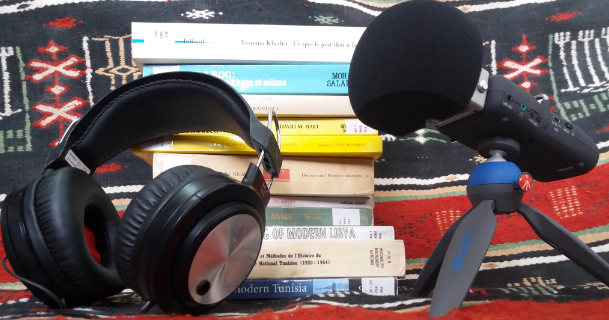
58.7K
Downloads
208
Episodes
Maghrib in Past & Present | Podcasts is a forum in which artists, writers, and scholars from North Africa, the United States, and beyond can present their ongoing and innovative research on and in the Maghrib. The podcasts are based on lectures, live performances, book talks, and interviews across the region. Aiming to project the scientific and cultural dynamism of research in and on North Africa into the classroom, we too hope to reach a wider audience across the globe.
Episodes

Thursday Jan 16, 2020
Criminal Justice and the Formulation of State-Society Relations in Morocco
Thursday Jan 16, 2020
Thursday Jan 16, 2020
Episode 82: Criminal Justice and the Formulation of State-Society Relations in Morocco
In this podcast, Fatim-Zohra El Malki seeks to retrace the socio-legal history of Morocco’s criminal justice system and its impact on the formulation of state-society relations. El Malki argues that Morocco’s Penal Code (PC) can serve as a useful object of analysis for tracing how the Moroccan state used the criminal system to deepen and consolidate its power following independence. Through the historicization of the criminal system, El Malki aims to center the legal processes that contributed to the territorial construction and consolidation of what is now the Kingdom of Morocco. Rather than focusing on the trajectory of the codes and legal systems, this presentation is an attempt to understand the mechanisms of violence and repression embedded in the legal system across time, of which the penal code is only a fragment. This discussion unravels an enduring paradox: how the makhzen’s deepening authority and territorial expansion created a strong central state at the expense of the progressive alienation of the citizen from the central power. In relation to criminal justice, the makhzen’s monopoly over judicial power placed a chokehold on the sphere of checks and balances between the citizen and the central authority. The PC constitutes a space for the legal expression of political violence perpetrated by the state against society, bearing in mind that the violence of the law is not inevitably illegitimate nor unethical. The unbalanced interplay of power dynamics, which lead to the overwhelming monopoly of violence by the state is what constitutes the core of the argument that places the PC at the center of this space. El Malki argues that reforming the system today would mean transferring the discursive monopoly of violence outside this scope, therefore shaking the safeguarded equilibrium of power that the modern Moroccan state holds.
Fatim-Zohra El Malki is a DPhil student at the University of Oxford. Her research project revolves around the making of the criminal justice system in Morocco, with a particular focus on the Penal Code. Fatim-Zohra El Malki holds master’s degrees in Arab Studies from Georgetown University’s Edmund A. Walsh School of Foreign Service (2016) and in Security Studies from Queen's University of Belfast (2013).
This podcast is part of the Contemporary Thought series and was recorded on 21 June 2019. at the Centre d'Études Maghrébines à Tunis (CEMAT).
We thank Dr. Tamara Turner, Ethnomusicologist and Research Fellow at the Max Planck Institute for Human Development, Center for the History of Emotions, for her interpretation of Natiro/ Ya Joro, from the Hausa repertoire of diwan.
Posted by Hayet Lansari, Librarian, Outreach Coordinator, Content Curator (CEMA).

No comments yet. Be the first to say something!